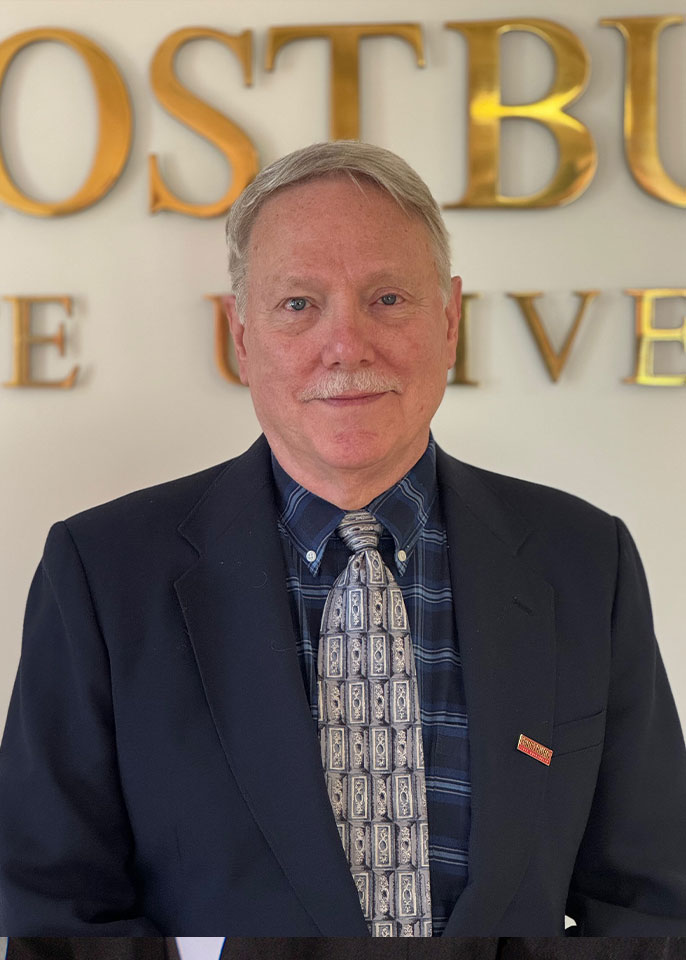FROM THE PROVOST
Guest Commentary:
Retrenchment Is Never Easy
By Dr. Lawrence Weill
Dr. Lawrence Weill was appointed interim provost and vice president for Academic Affairs of FSU (now the Division of Student Success) in October of 2024. He most recently served as interim CEO of the University System of Maryland – Hagerstown (USMH) and prior to that as vice president of Academic and Student Affairs at SUNY Sullivan. He also served as the president/CEO at Gordon State College in Georgia for 18 years.
Dear Profile Readers,
Last June, as a member of the Registry, I received a notice that Frostburg State University was looking for an interim provost and vice president of academic affairs and that my name had been chosen to express my interest. Of course, I did my due diligence. One of the first things that influenced me to continue was that Ron Nowaczyk was president. In my time as interim CEO of University System of Maryland at Hagerstown, I reported to Ron. I found him insightful, engaged, communicative. I also saw the issues facing the University - falling enrollment, less support from the state and a student-to-faculty ratio that was unsustainable. I also knew the University had announced “retrenchment" and that the Divisions of Academic Affairs and Student Affairs were to be combined with the new interim to head that up.
Surely this was no easy task. So, why did I express interest?

I had served as vice president of Academic and Student Affairs at a SUNY school which was also just coming out of retrenchment. These are not problems for FSU specifically, nor even Maryland. Colleges and universities across the country are facing the same issues. There are schools across the country letting faculty and staff go to make budget. An increasing number of colleges and universities are simply closing due to falling enrollment and mounting debt. The traditional role of higher education is being revised. I put my name in at FSU because I believed (and still do) my 50 years of higher education experience could help the University navigate these waters and come through it in a better place than it had been before. Yes, it is difficult for anyone to lose their position, but in the end, we are charged with doing what is best for the University and if we can do that and still maintain our identity, our dignity and our purpose, then we have done our job.
The process that was undertaken and in which I was very involved was the best course possible. All decisions were data-based and involved exhaustive analysis of productivity, costs and program integrity. That does not mean that it was not contentious or that it was easy. It was hard. I have never known retrenchment to not evoke strong reactions amongst faculty, students, alumni and staff. Moreover, there is no one in the administration that thinks this process is enjoyable. It’s as hard on administrators as it is anyone, in my opinion. No one wants to be the person who takes away someone else’s job. But then we return to the charge: doing what is best for the University.
Retrenchment decisions are completed. Several more-senior faculty members retired or took Terminal Transitional Leave (or phased retirement) to save the positions of their more junior colleagues. Their selflessness and empathy are so very commendable. That does not mean the effects are over. There are still faculty who are compelled to seek employment elsewhere. Departments are tasked with tightening course rotations and perhaps expanding limits on individual sections. Some programs are looking to revise their offerings. But now is the time that we must all, as members of that learned community known as The Academy, reassert our commitment to our common purpose.
FSU is alive and well, and we will continue to be an important cornerstone of western Maryland. We have done the hard tasks before us to position ourselves to achieve new heights. Prepare to see Bobcats spring into action.
Sincerely,
Dr. Lawrence Weill
Interim Provost and
Vice President for the Division of Student Success
